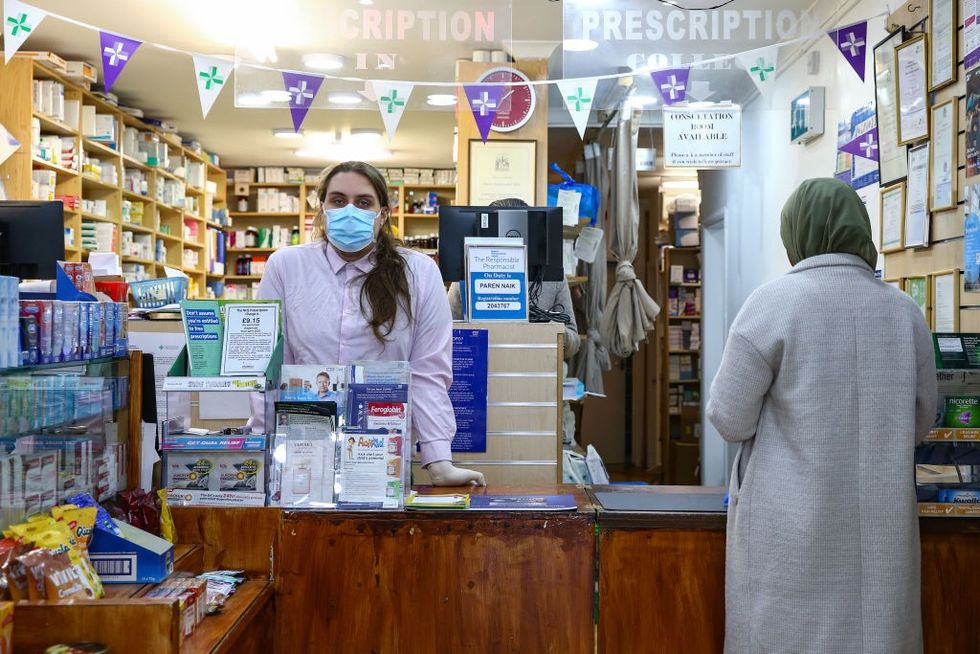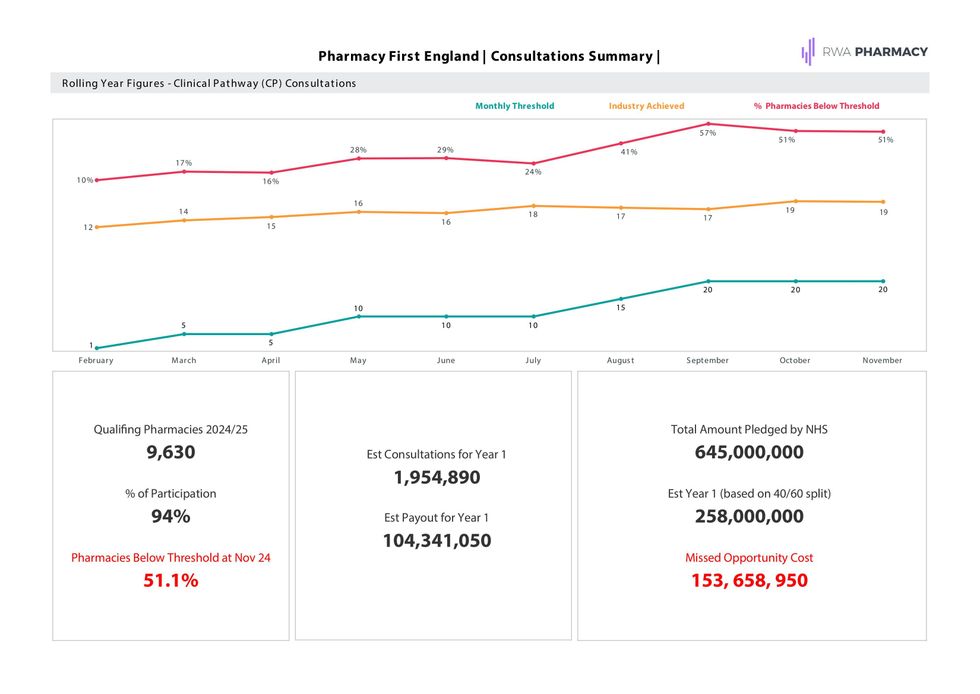Santosh Sahu, Founder and CEO of Charac, discusses the role of technology in improving the finances of community pharmacy, and making them more self-sustainable...
Community pharmacists across the UK are looking for ways to reduce operational costs and find new sources of revenue. This is a pressing issue for the sector: reversing a decade of cuts to pharmacy funding will be a mammoth task, while pharmacists have taken on new primary care responsibilities under Pharmacy First.
This means that fresh sources of revenue and lower costs will overwhelmingly come from new technology and the efficiencies they can bring. As Britain’s 11,500 community pharmacies assume a larger role on the frontlines of primary care, pharmacists should rapidly implement cost-effective tech solutions that provide pharmacies with a one-stop-shop to drive down costs and increase revenue.
Opportunity in PGD reform
New technology will be key for community pharmacists to benefit fully from reforms to PGDs. The scope of PGDs is now significantly expanding: as of June 26, pharmacy technicians are now on the list of registered healthcare professionals who can make use of PGDs.
These reforms can benefit community pharmacies in several ways. For one, they will allow more pharmacy staff to administer ‘frontline services’ such as vaccinations – reducing costs and generating revenue. Further, the wider range of services that pharmacies can offer under Pharmacy First will make these procedures, as well as other kinds of preventative care, more accessible and convenient – increasing footfall. With international travel and tourism now growing apace, increased demand for travel vaccinations means that, according to research from Charac, the average UK community pharmacy can expect to generate £46,800 a year through travel health services.1
Innovative PGD solutions are key to taking advantage of these lower costs and new revenue streams. For example, premise-wide PGDs - which cover an entire pharmacy and its staff – are currently being rolled out by a partnership between Charac and PGD provider ECG Healthcare. These eliminate the administrative task of managing different PGDs for different types of procedures, as well as shortening the onboarding process for new staff.
Pharmacists should also look to take advantage of digital PGDs. Community pharmacies can now use digital platforms to store PGD documentation on the cloud, book and carry out virtual consultations for PGD-enabled services, and log these digitally. Innovations like these will cut down on clerical work for pharmacists by automatically creating online health records and will significantly expand their base of potential customers.
Innovative delivery solutions
The digitalisation and rapidly falling cost of delivery services present a huge market opportunity for community pharmacists. Pharmacists should take advantage of prescription delivery services to reap the commercial benefits.
Digitally-powered prescription delivery platforms let pharmacists manage their medication inventories and deliveries more efficiently, streamlining the process for patients to order and receive prescriptions promptly. Patients will be able to book their prescription deliveries
and track orders from the comfort of their own. For example, Charac’s acquisition of Pro Delivery Manager means Charac can now provide community pharmacies with a system to optimise delivery efficiency and track drivers, ensuring patients are updated and receive their prescriptions in a timely manner. This creates new revenue for pharmacists, especially from patients with impaired mobility who cannot easily travel to a physical pharmacy.
Over 1.04 billion prescriptions are dispensed annually in the UK.2 To handle this large and growing volume of transactions, pharmacists should look to rationalise their dispensary services through cost-effective delivery platforms.
Modernising operations
More generally, the systems and processes of community pharmacies should be upgraded
to help these vital high street institutions meet the challenges of the 2020s. Cheap, accessible software like an online dashboard that lets staff track appointments, claims, and health records would do much to streamline operations – cutting down on administrative tasks and letting pharmacists give their full attention to patients. This means pharmacists have more time, and the appropriate resources, to conduct revenue boosting activities such as the New Medicine Service and Pharmacy First consultations.
Further, a concerted effort to promote community pharmacies on social media would pay
major dividends by making potential customers more aware of the services they provide. This is especially important: a Charac survey in partnership with YouGov found that the public is largely unaware of the treatments that are on offer at their local pharmacy, and all too often use A&E or a GP as their first port of call instead.3
Last, the digitalisation of medical records will be especially important in the age of Pharmacy First. Primary care – which community pharmacies are now taking a much larger role in – has very rigorous standards of documentation to help avoid malpractice. Digital technology is the best way to enable busy pharmacists to seamlessly create the needed documentation, meeting reporting requirements and insuring themselves against potentially costly legal liability should something go wrong.
Thousands of community pharmacies up and down the country provide a vital service to millions of patients every day. By utilising cost-effective technology, pharmacists can help bring the era of stuffed manilla folders and filing cabinets to a definitive end – increasing revenue and reducing costs through digitalisation.
By Santosh Sahu, Founder & CEO of Charac
1 https://www.newbusiness.co.uk/articles/entrepreneurs/charac-partners-with-pgd-supplier-ecg-enhance-pharmacyprovision-private-clin#:~:text=With%20international%20 travel%20expected%20to,through%20travel%20health%20 services%20alone.
2 https://www.statista.com/statistics/418091/prescriptionitems-dispensed-in-england/
3 https://inews.co.uk/news/health/pharmacy-first-schemepatients-2881053










 Harry McQuillan
Harry McQuillan






 Wes Streeting outlines ambitious NHS reform plansPic credit: Getty images
Wes Streeting outlines ambitious NHS reform plansPic credit: Getty images Pharmacies played a critical role during the pandemicPic credit: Hollie Adams/Getty Images
Pharmacies played a critical role during the pandemicPic credit: Hollie Adams/Getty Images




 Shivam Modi
Shivam Modi